Photo credits: Lucas Jackson for Reuters
Another area where racial profiling exists is at public facilities. In a research article titled “The Emotional Toll of Shopping While Black” author Angela Fichter states:
“In a 2013 Pew Research Center poll, 46% of black people reported unfair treatment in stores and restaurants, compared to only 16% of whites (Fichter, 2016, n.p.).”
This Pew Research Center poll shows many statistics about black people. The black pollsters reported being treated unfairly in stores and restaurants. They reported a rate of 46% compared to a 16% rate reported by white pollsters. Athletes are also being racially profiled as well. The New York Post published an article titled “Gold medalist accuses airport cops of racial profiling” by Yaron Steinbuch. It reports on a gold medalist who was racially harassed at a German airport.
In the Post’s news article, Steinbuch reports:
“Four-time Olympic gold medalist Mo Farah has claimed he was racially harassed at a German airport, where he posted his altercation with a cop on social media, according to reports. Britain’s most successful distance runner traveled through Munich Airport on Monday en route to Ethiopia to prepare for the April 22 London Marathon. In his Instagram Live postings which included his running commentary as the uniformed officer pushed him toward the gate, Farah added the caption: Sad to see racial harassment in this day and age. 2018…!!!! #airport #germany (Steinbuch, 2018, n.p.).”
This example shows that racial profiling happens to athletes. The article states that Farah was being pushed towards the gate by a uniformed officer. He was racially harassed at a German airport. Even celebrities are victims of racial profiling. A CNN news report titled “Oprah Winfrey racism row over Switzerland shop incident” by Nick Thompson and Diana Magnay mentions Oprah Winfrey experiencing racism. It happened during a trip to Switzerland as she shopped for handbags.
According to their CNN news report, writers Nick Thompson and Diana Magnay state the following:
“Billionaire US media mogul Oprah Winfrey says she was the victim of racism on a recent trip to Switzerland when a shop assistant refused to show her a handbag because it was ‘too expensive.’ Winfrey was in Zurich for Tina Turner’s wedding in late July when she left her hotel alone and popped into an upscale handbag shop. She told Entertainment Tonight: ‘I was in Zurich the other day at a store whose name I will not mention. I didn’t have my eyelashes on, but I was in full Oprah Winfrey gear. I had my little Donna Karan skirt and sandals, but obviously, The Oprah Winfrey Show is not shown in Zurich.’ ‘I go into a store and say to the woman, Excuse me, may I see that bag over your head? and she says to me, No, it’s too expensive (Thompson and Magnay, 2013, n.p.).”
This incident that took place at a shop in Switzerland shows that Winfrey was being racially profiled. Winfrey asked a shop assistant to see a handbag she wanted. However, the shop assistant refused to show her because she thought it was “too expensive.” The shop assistant believes that Winfrey could not afford it because she was black. Racial profiling has a negative effect on people in public facilities. It violates the most basic rights of innocent people.
In the article, “The Emotional Toll of Shopping While Black” Angela Fichter quotes:
“Racial profiling in stores feels especially insidious because that watchfulness implies the assumption that, because I am black, I cannot afford to make a purchase and that because I cannot afford to make a purchase, I am therefore inherently suspicious, untrustworthy, and criminal. Being followed sends the clear message that I’m not welcome and do not belong. The ‘Whites Only’ signs on storefronts are no longer visible, but our every move, our clothing, the very fabric of who we are is policed just the same. It’s undermining. It’s hurtful. And it’s become stressful enough to threaten our health (Fichter, 2016, n.p.).”
Fichter discussed her experience with racial profiling at a store while shopping for items. On the day she describes, Fichter entered the store and was stared at awkwardly. People assumed she couldn’t afford to make purchases there because of her ethnicity.
They assumed she was an apprehensive criminal who could not be trusted.
Some people believe that racial profiling projects acceptable behavior. It is not. Racial profiling is one of the main factors that are negatively impacting society. Racists believe that profiling people of color is a preventative measure. They believe racial profiling is acceptable as an advantage for unsavory reasons. It helps the racist elite save money and time when police are looking for a specific criminal. They believe if it is practiced without any restrictions, racial profiling helps solve crimes.
However, there are no logical explanations as to why racial profiling is okay.
References
Fichter, A. (2016). The emotional toll of shopping while black. The Establishment.
https://theestablishment.co/the-emotional-toll-of-shopping-while-black-bcda5e51a7fd
Steinbuch, Y. (2018). Gold medalist accuses airport cops of racial profiling. New York Post.
https://nypost.com/2018/03/08/gold-medalist-mo-farah-accuses-airport-cops-of-racial-harassment/
Thompson, N. & Magnay, D. (2013). Oprah winfrey racism row over switzerland shop incident. CNN. https://edition.cnn.com/2013/08/09/world/oprah-winfrey-racism-switzerland/index.html

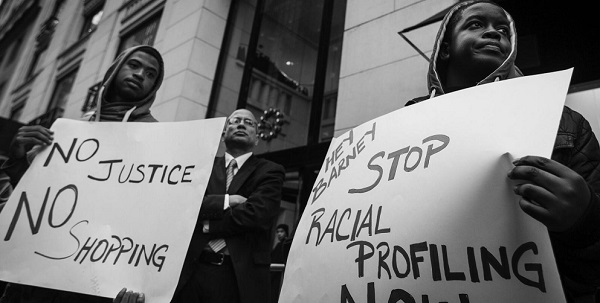





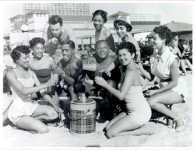



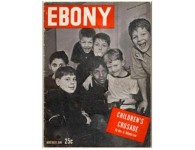

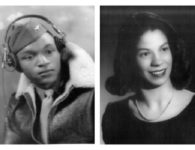
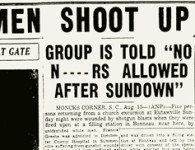
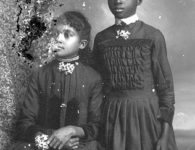



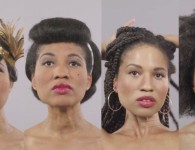

No comments